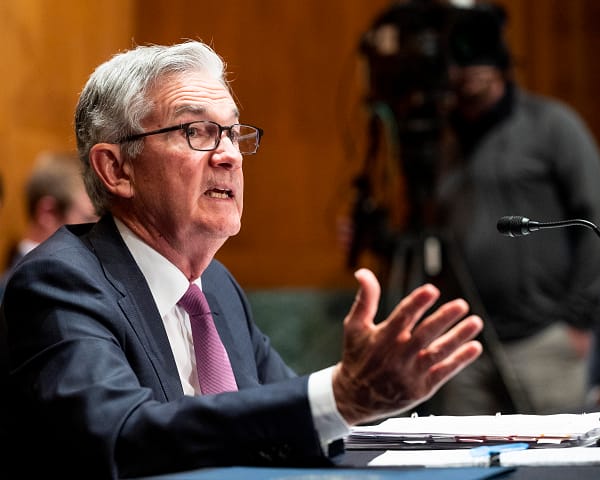US Federal Reserve Chair Jerome Powell has delivered his policy speech from Jackson Hole, Wyoming.
Powell said that: “The time has come for policy to adjust. The direction of travel is clear and the timing and pace of rate cuts will depend on incoming data.”
Newspage asked market experts and economists which sectors and asset classes could benefit from this statement.
Gabriel McKeown, Head of Macroeconomics at Sad Rabbit Investments said, “The doves are in the ascendancy stateside. Powell’s speech demonstrated that he is navigating the economic seas with a steady hand on the tiller after adopting an anticipated dovish tone and reiterating that the time has come for policy to adjust.
“The market will, of course, be pleased to have received confirmation on the direction of travel for rate adjustments. However, he kept his cards close to his chest by not providing exact details on the timing or size of rate cuts.
“There was also further cause for optimism as Powell confirmed that the economy is growing steadily and rising inflation risks have dissipated, with the primary downside risk being isolated to the labour market.
“The jury, of course, is still out on the exact size of the rate cut in September, with a 25 bps forecast most likely. However, Powell’s speech will have provided a cause for optimism after signalling the first rate cut in four years is on the horizon.
“A decision by the Fed to cut interest rates in September could have far-reaching implications for asset flows, with easing monetary policy driving investors to shift focus to higher-yielding assets, in particular emerging-market equities. Commodity exporters like Brazil and Mexico could benefit from the weaker US dollar, boosting commodity prices and reducing borrowing costs for these countries.
“Other emerging markets, such as Indonesia and the Philippines, could also benefit from improved trade dynamics and increased capital inflows. The rate cut is expected to reduce borrowing costs across the economy, making it cheaper for companies to raise capital and boosting corporate profits.
“Technology and other high-growth sectors, which have historically relied heavily on borrowing for expansion, could see a further increase in investor demand. Consumer discretionary sectors, such as automotive and retail, could also receive a boost from improved consumer spending.”
Anita Wright, Independent Financial Adviser at Bolton James said, “The Fed pivot that markets have been anticipating for a year is officially here, and now the market is getting what it wants. Financial conditions are about to become extremely loose once again, with no genuine recession fears reflected in market pricing.
“I’m concerned that Powell took a huge gamble by implying that the war against inflation had been won. The real source of elevated inflation pressures will come from the enormous government deficit spending proposed by both presidential candidates, not the labour market.”







.jpeg?width=1200&auto=webp&quality=75)
